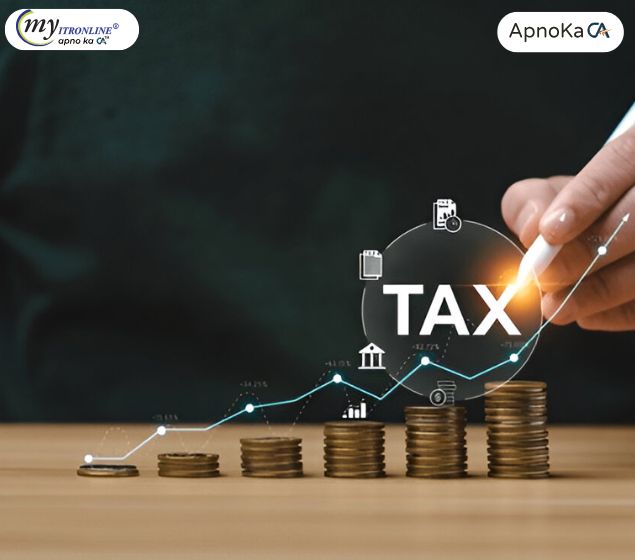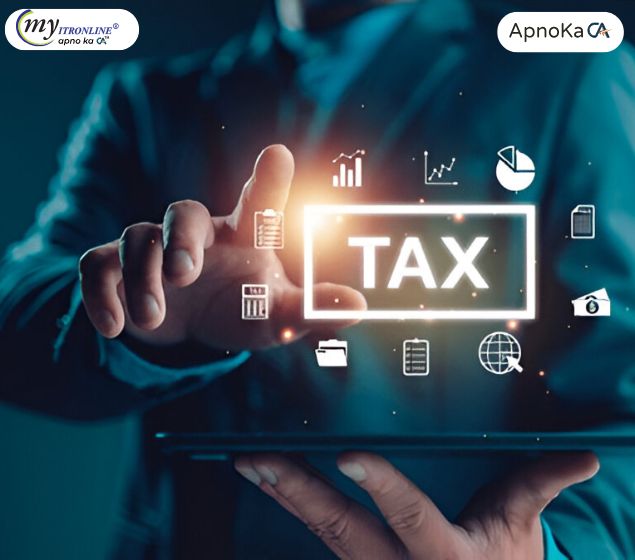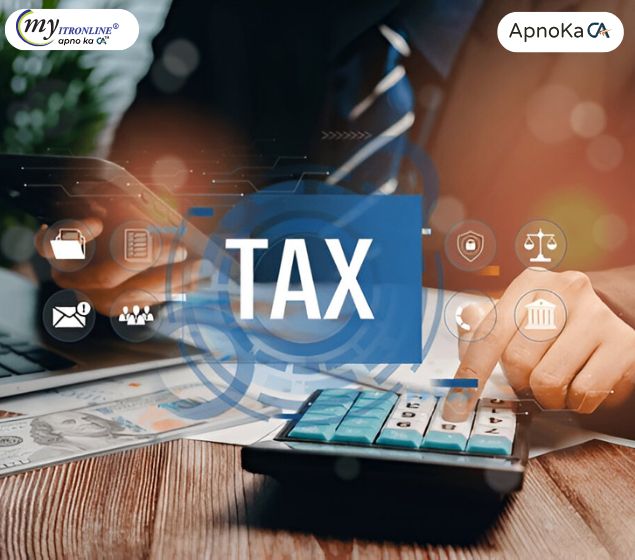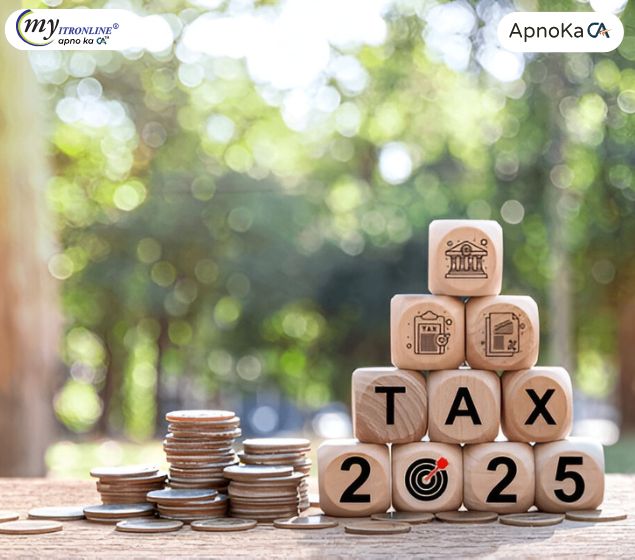# incometaxindi
12 posts in `incometaxindi` tag

Tax Season Starts Early: ITR-1 (Sahaj) & ITR-4 (Sugam) Notified for AY 2025-26!
The blog post announces the early notification of ITR-1 (Sahaj) and ITR-4 (Sugam) forms by the CBDT for the Assessment Year 2025-26 (corresponding to Financial Year 2024-25). It details the eligibility criteria for using these forms, explains the significance of the early notification for taxpayers (more preparation time, potentially earlier filing utility release), clarifies the difference between form notification and utility release, reminds readers about the AY/FY distinction, and advises taxpayers to start gathering necessary documents while waiting for the official filing utilities to be launched on the Income Tax portal.

Form 16B Overview: Important Deadlines and Fines for Property TDS Certificates
This blog explains Form 16B, the TDS certificate mandatory for property sales over ₹50 lakh in India under Section 194-IA. It details the buyer's responsibility, the process involving Form 26QB, critical deadlines for certificate issuance (15 days from Form 26QB due date), and the penalties (₹100/day under Sec 272A(2)(g)) for non-compliance, emphasizing its importance for both buyers and sellers.

Don't Miss the Deadline: Vivad se Vishwas 2024 Ends April 30, 2025!
This blog post details the recently announced final deadline of April 30, 2025, for filing declarations under the Direct Tax Vivad se Vishwas Scheme, 2024 (VSV 2.0). It explains the scheme's purpose, eligibility criteria (including the expansion for certain cases), key benefits like waiver of interest/penalty, the procedural steps involving Forms 1-4, and urges eligible taxpayers to act before the deadline to resolve pending direct tax disputes.

CBDT Guidelines on Section 37(1): What Business Expenses Are Now Disallowed?
This blog post examines the clarified disallowances under Section 37(1) of the Income Tax Act following the Finance Act 2022 amendment to Explanation 1. It details how expenses related to illegal activities, penalties, compounding fees, prohibited benefits/perks (like certain freebies), and violations of foreign laws are now more explicitly non-deductible, emphasizing the need for businesses to ensure compliance and maintain thorough documentation.

Understanding ITR: Your Definitive Guide to Income Tax Returns in India (2025)
This guide explains Income Tax Returns (ITR) in India for AY 2025-26. It defines ITR, outlines the significant benefits of filing (like refunds, loan proof), details who must mandatorily file based on income thresholds (e.g., GTI > ₹3 Lakh in new regime) or specific high-value transactions (deposits > ₹1 Cr, foreign travel > ₹2 Lakh etc.), and clarifies exemptions, including the specific conditions for senior citizens over 75 under Section 194P.

Short-Term Capital Gains Tax Explained (India 2025): 15% vs Slab Rate
This post explains Short-Term Capital Gains (STCG) tax in India for 2025 (FY 2024-25 & 2025-26). It defines capital assets, details holding periods for STCG classification (e.g., <=12 months for listed equity, <=24 months for property, <=36 months for others), explains STCG calculation, outlines tax rates (15% under Sec 111A for STT-paid equity/EOF vs. slab rates for other assets), and covers loss set-off/carry forward rules and ITR reporting.

19.2 Lakh Salary, Zero Tax? The Truth About India's New Tax Regime (FY 2025-26)
Analyzes the feasibility of achieving zero income tax on 19.2 lakh earnings under India's new tax regime (FY 2025-26 / Section 115BAC). Details the regime's rules, standard tax calculation, and debunks the zero-tax claim by highlighting the reliance on disallowed deductions (HRA, LTA, flexi-allowances). Concludes it's unrealistic for most salaried individuals

India's New 1% TCS Rule: What Buyers & Sellers of Luxury Goods Over 10 Lakh Must Know
This post details India's new 1% Tax Collected at Source (TCS) regulation, effective April 22, 2025, under Section 206C(1F). It applies to specific luxury goods (watches, art, yachts, etc.) when the sale value exceeds ₹10 lakh. The article explains the TCS mechanism, lists affected items, clarifies calculation, outlines buyer and seller responsibilities, differentiates it from Section 206C(1H), and highlights that the TCS paid is adjustable against the buyer's income tax liability.

India TDS Rate Chart FY 2025-26 (AY 2026-27): A Preliminary Overview
An initial guide to Tax Deducted at Source (TDS) rates and thresholds for India's Financial Year 2025-26 (Assessment Year 2026-27), based on current provisions as of April 2025. Details include a comprehensive rate chart covering common sections, key considerations like PAN non-furnishing, recent threshold changes (e.g., for interest, rent, commissions), potential policy updates (like the status of Section 206AB), and essential compliance deadlines. The guide strongly emphasizes that final rates are contingent upon the Full Union Budget 2025.

How to File Form 10AB Online: Final & Renewal Registration Guide (India)
This guide details Form 10AB, used by Indian charitable trusts, NGOs, and institutions for final or renewal registration/approval under Income Tax Sections 12A, 80G, and 10(23C). It clarifies the difference between Form 10A (provisional) and 10AB (final/renewal), outlines who must file, and explains the benefits and process of filing online via the Income Tax e-Filing portal. The post covers required documents, crucial deadlines (including the 6-month rules), discusses past extensions (like the June 30, 2024 deadline), the new condonation of delay facility, and the outcome of filing (5-year validity via Form 10AC).

CBDT Notification 23/2025: Impact on Your Form 3CD Tax Audit
This blog outlines the key changes to Form 3CD (Tax Audit Report) implemented by CBDT Notification 23/2025, which takes effect from Assessment Year 2025-26. It discusses possible updates in reporting related to MSME payments, Virtual Digital Assets (VDAs), concessional tax regimes, and depreciation, as well as the necessary steps for both taxpayers and auditors.

Advance Tax Guide for Presumptive Taxation Users (Sec 44AD/44ADA)
This blog explains how opting for presumptive taxation under Sections 44AD (businesses) and 44ADA (professionals) simplifies Advance Tax obligations, requiring only a single payment by March 15th instead of quarterly installments. It covers eligibility, calculation, and non-compliance consequences.
